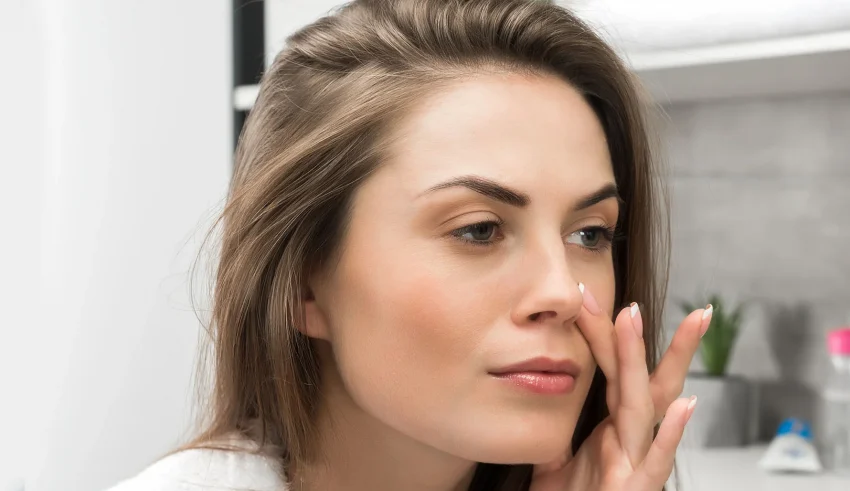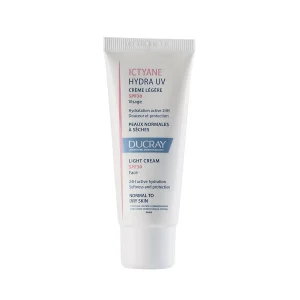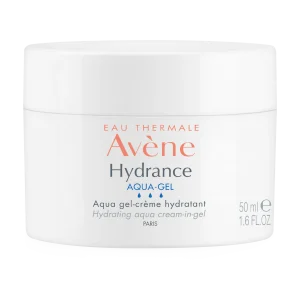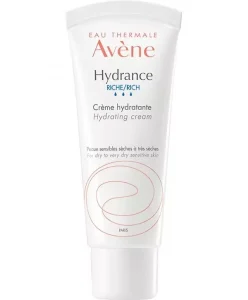
Whether it’s your face, hands, or feet, there’s no denying that dry skin is no fun. And when you’re battling dry patches, it also means you’re going to be spending a little extra time properly moisturizing. Simply put, you’ll need to look for formulas that are thicker and contain nourishing ingredients. That’s why we reached out to the dermatologist Dr. Kareem Harb to find out the main culprits and the best moisturizer for dry skin to soothe chapped and flaky skin for good.
What might be the causes of dry skin?
- You wash too often.
Excessive washing is the number one reason for super dry skin.
- Your water is too hot.
Excessive exposure to hot water can strip your skin of its essential oils, leading to irritation and inflammation. This is why Dr. Kareem Harb recommends avoiding very hot and long showers.
3- You use a cleanser that disrupts your skin’s natural pH.
Traditional soaps have an alkaline pH that can disrupt the outer layer of the skin. It’s best to use a face wash for dry skin that is pH balanced to match the skin’s slightly acidic pH. Another option is to find a cleanser with surfactants that effectively remove dirt without damaging the outer layer of the skin.
- You exfoliate more than you need to.
Exfoliation is definitely an important step in your skin care routine, but you can overdo it. Experts recommend doing it no more than twice a week and even less often for dry skin.
- You apply your moisturizer at the wrong time.
You need to make sure you are applying your moisturizer correctly to avoid dry skin. Applying your moisturizer when your skin is still damp is the best way to ensure that it is fully absorbed.
- Age.
Skin can become drier and thinner with age. Sometimes, a woman’s dry skin is due to hormonal disorders that tend to appear at menopause.
- You are taking certain medications that can dry out your skin.
Many medications have the side effect of drying out your skin. Some medications dry out your skin as part of their action, such as acne medications like benzoyl peroxide or retinoids, but other medications used for conditions like high blood pressure can also dry out your skin.
- You are fighting a skin disease or other health problem.
Eczema and psoriasis are skin conditions that can cause very dry skin. In addition, other conditions like thyroid disorders and diabetes are known to dry out the skin.
What happens if your skin is too dry?
According to Dr. Kareem Harb, dry skin is rough to the touch. It can be scaly, flaky, or peeling. It may also have fine lines or cracks. He adds that excessive dryness can lead to redness, cracking, and inflammation of the skin.
- Roughness
Rough skin can be discolored and scaly. It often looks like a dry rash and can appear on any part of the body.
- Severe itching
When the skin has lost a lot of moisture, it causes itching.
- Mild to severe flaking
If your skin starts to shed in large flakes, this is a reliable sign that your skin is severely dry and needs extra care. Flaking is definitely a symptom of very dry skin.
- Cracked skin
Cracking occurs when the skin loses its ability to retain moisture and the skin barrier is damaged. In this case, due to lack of moisture, the skin loses its elasticity and it may break.
Many people wonder if dry skin can cause acne, Dr. Kareem Harb assures that dry skin is not a direct cause of acne but it can trigger the production of more sebum, which can lead to acne.
What is the best moisturizer for dry skin?
If you have dry skin, you’ll want to use a moisturizer that will help seal in moisture beneath the surface and prevent it from evaporating into the environment.
Moisturizers should be applied to cleansed skin, as they prevent the skin from drying out after washing. They should be applied twice a day, morning and evening.
Moisturizing your face:
- helps protect the skin barrier from irritation.
- helps reduce dryness.
- creates a barrier between your skin and the weather, especially cold, dry air that can further dry out the skin.
- helps rehydrate and improve the skin’s ability to retain water.
Look for occlusive ingredients, which means they create a barrier that prevents water from escaping the skin. For this reason, Dr. Kareem Harb recommends opting for products that contain ceramides, hyaluronic acid, glycerin, and urea.
- Ceramides protect the skin and prevent it from drying out and becoming infected. Applying ceramide-based moisturizers can help restore your skin’s natural ceramide levels and improve its health.
- Hyaluronic acid hydrates and soothes dry skin. Its humectant properties help keep the skin hydrated throughout the day.
- Glycerin is a humectant and is super hydrating. Glycerin hydrates the skin by drawing water from the air into the outer layer of the skin. It creates a protective layer that helps prevent moisture loss.
- Urea is also a humectant. It keeps your skin moist by drawing water from the deeper layers of your skin and from the air.
Ducray Ictyane Hydra UV Light Face Cream SPF 30: Apply in the morning after cleansing.
Eau Thermale Avène Hydrance Aqua-Gel: Apply in the morning and evening after cleansing.
Eau Thermale Avène Hydrance Rich Hydrating Cream: Apply in the morning and evening after cleansing.
Key points to remember
- Common signs of extremely dry skin are roughness, flaking, cracking of the skin, and itching.
- Severe dry skin is caused by the absence of sebum naturally produced by the skin due to various factors such as genetics and the environment.
- The most effective ways to treat severe dry skin are to moisturize immediately after cleansing your face or body.
- If symptoms persist, you can consult a dermatologist.












